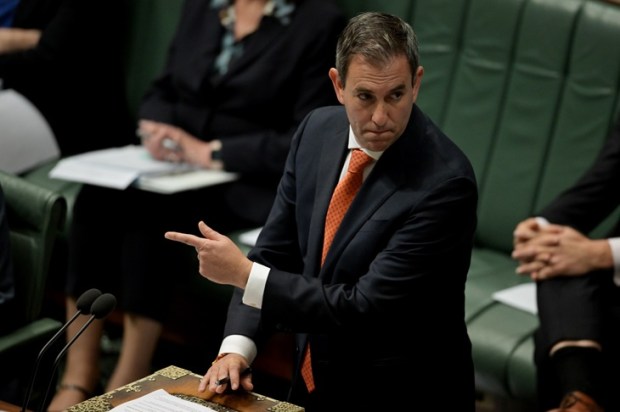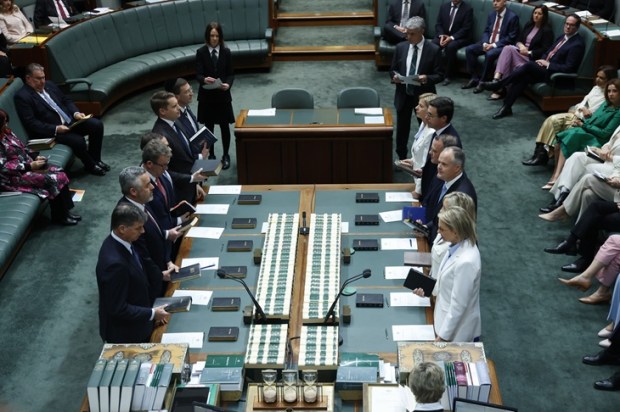The climate of thinking, the Zeitgeist, can seriously limit a country.
The story of Australian democracy began in the 1850s, with local Parliaments setting up new Parliaments elected with one man, one vote, and the secret ballot in three colonies.
It is the first story of a three or four-storey building. The other parts of the building do not stand up without it. You cannot marvel at extending votes to women without understanding how and why men got the vote first, and how it was then liberalised.
Yet we almost pretended that the first level of our democracy did not exist in recent years. And what was the explanation for it? Was it Whigs, Tories, liberals, Chartists, radicals? The working out of the British Constitution of free speech, newspapers, and elections? The absence of an aristocracy?
It was not until I undertook a recent project to bring together and publish the parliamentary debates on this first, crucial democratic step in the 1850s that the arguments were brought to light. There was some earlier interest; but little since McMinn’s constitutional history of 1979, which in any event did not attempt a detailed examination of the parliamentary debates. There was some piecemeal interest, but nothing systematic about all the colonies.
There is no lack of research spending. Since Federation, the Commonwealth and States sponsored and paid for research projects of all kinds in Australia that amount to billions in recent years.
The overall priorities of the humanities since 1979, however, increasingly became minority rights. The story of democracy involves a lot of white British men.
What mattered was not that but whether they made the right decisions, which they largely did. Our democracy evolved from inevitably flawed beginnings. But it did not stick in a flawed state or degenerate, as the governmental systems of some countries did, to the destruction of all livelihoods. Minority rights were addressed.
People are not usually that narrow-minded. But a narrow-minded result would today not be at all surprising.
The first lesson is that there is no point in just raging against the zeitgeist. The zeitgeist will tend to win.
This is reflected in for example Against the Tide, the autobiography of a warrior for Catholic tradition and an influential anti-communist agitator, Bob Santamaria. Bob Santamaria had great success in limiting communist influence in trade unions, although by no means complete success. Yet the title of his autobiography is despairing.
Tides always win. King Cnut made this clear over a thousand years ago, when he ordered the tides not to come in. They did. Santamaria’s campaigns for a traditionalism of a particular kind may not have been successful in his view.
George Polites led the employer movement at the height of trade union power and success in the 1960s and 1970s. His more realistic dictum was ‘slow down the rate at which you lose’ or at least that is my memory, which may have been suitable for the times. He had many successes, although the ‘wage explosion’ of 1981 occurred and caused mass unemployment. His efforts to stop it were not widely supported.
But the zeitgeist sometimes needs a major correction. The US humanities developed an appalling antisemitism on US universities, and no one either would or could stop it. University heads, sometimes alleged to be ‘DEI hires’ and mundane in academic achievement, were removed. President Donald Trump was elected on a platform of, ‘Kamala is for they/them, President Trump is for you!’
Something of a major correction is now occurring, including the abolition of ‘DEI’ across the US Government sector, as well as the US Supreme Court ending affirmative action. Now the US is tying its massive funding even of university research in Australia to removal of ‘DEI’.
There is nothing wrong with promoting a common citizenship. But thinking about all people, ‘we the people’ cannot be allowed to degenerate into bigotry. And what about diversity of ideas, the most important diversity of all?
How an alleged concern for all people hardened into the insanity of US and Australian university antisemitism is difficult to understand but harden it did.
Senator Sarah Henderson, Shadow Minister for Education, asked for the cancellation of an academic’s grant application of $870,000 after the academic allegedly encouraged children to chant unpalatable slogans at a University of Sydney protest, among other things.
The Minister for Education, Jason Clare acted. The ARC suspended the grant.
So there is a point to raging against the zeitgeist, particularly when it becomes indefensible even to those who share it.
But raging should be accompanied by a positive message, such as support for democracy, or for a common citizenship. It appeals to more people, is more successful, and does not appear to be simply destructive. It is more truthful.
It can convince those who have never given the matter much thought or are simply conventional and go along with the zeitgeist, particularly where it is enforced by ostracism.
And some so-called ‘marginalised’ citizens, not of course the academic mentioned by Senator Henderson, feel insecure and exaggerate their marginalisation. Or they become vocal professional victims and undermine Australia’s tradition of civil peace, the golden thread of our history, with threatening demonstrations and language.
Lies must be exposed. Tact and diplomacy sometimes work. Not everyone is easily able to admit a mistake.
Unless that is tried and pointless. Then go right ahead and call Senator Elizabeth Warren, ‘Pocahontas’. In February 2019 she apologised for her claims of Native American ancestry.
Jokes also work. It is called free speech.

























